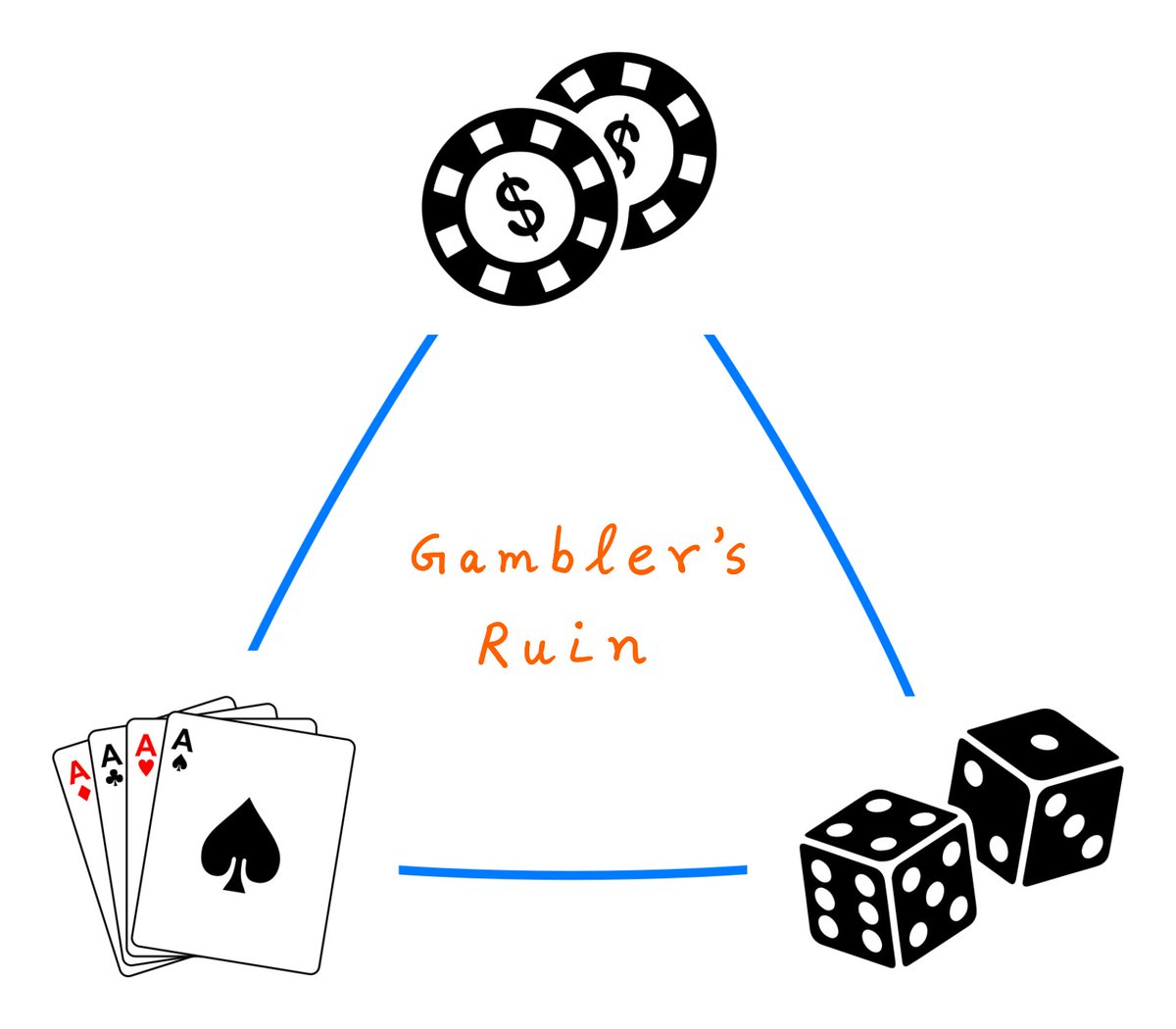Folks, here's our latest Money Concepts episode.
We met on Sunday. We discussed several concepts related to compounding and exponential growth -- for ~1.5 hours.
If that seems too long, scroll down for some ~2 minute highlights!
callin.com/link/MHIxpuMaIc
We met on Sunday. We discussed several concepts related to compounding and exponential growth -- for ~1.5 hours.
If that seems too long, scroll down for some ~2 minute highlights!
callin.com/link/MHIxpuMaIc
Highlight #1
Compounding means *exponential* growth of wealth.
Examples of compounding: (1) A savings account that accrues interest, (2) a business that retains earnings and re-invests them to earn steady returns.
NOT an example of compounding: hourly wages.
Compounding means *exponential* growth of wealth.
Examples of compounding: (1) A savings account that accrues interest, (2) a business that retains earnings and re-invests them to earn steady returns.
NOT an example of compounding: hourly wages.
Highlight #2
Buffett's early start is a big part of his > $100B net worth. He bought his first stock when he was just 11.
Thankfully, most of us don't need $100B to be happy in life. If our goal is simply to achieve Financial Independence, we can afford to start a little later.
Buffett's early start is a big part of his > $100B net worth. He bought his first stock when he was just 11.
Thankfully, most of us don't need $100B to be happy in life. If our goal is simply to achieve Financial Independence, we can afford to start a little later.
Highlight #3
The Idea That "Great Investors Don't Use Excel"
Excel can help us do all kinds of sophisticated calculations.
But as Andy Benoit said so beautifully:
Most geniuses prosper not by deconstructing intricate complexities, but by exploiting unrecognized simplicities.
The Idea That "Great Investors Don't Use Excel"
Excel can help us do all kinds of sophisticated calculations.
But as Andy Benoit said so beautifully:
Most geniuses prosper not by deconstructing intricate complexities, but by exploiting unrecognized simplicities.
Highlight #4
Businesses that have low margins can still produce great returns for their owners -- IF they turn capital (eg, inventory) fast enough.
Businesses that have low margins can still produce great returns for their owners -- IF they turn capital (eg, inventory) fast enough.
Highlight #5
ROIC vs ROIIC
ROIC is the return a business earns on *legacy* capital that it already has.
ROIIC is the return it will earn on *new* capital that we pour into it today.
For many mature businesses, ROIIC can be *much* smaller than ROIC.
ROIC vs ROIIC
ROIC is the return a business earns on *legacy* capital that it already has.
ROIIC is the return it will earn on *new* capital that we pour into it today.
For many mature businesses, ROIIC can be *much* smaller than ROIC.
Highlight #6
When deciding how much to pay for a business, we should take into account its future "compounding runway".
That is, for how much longer can the business continue to grow? How fast will this growth be? And how much capital will it take?
When deciding how much to pay for a business, we should take into account its future "compounding runway".
That is, for how much longer can the business continue to grow? How fast will this growth be? And how much capital will it take?
Highlight #7
Why do stocks/businesses grow exponentially?
It's the magic of retained earnings.
Good businesses often don't dividend out *all* their earnings. They *retain* a portion of it, and *compound* it at a decent rate.
That's their engine of exponential growth.
Why do stocks/businesses grow exponentially?
It's the magic of retained earnings.
Good businesses often don't dividend out *all* their earnings. They *retain* a portion of it, and *compound* it at a decent rate.
That's their engine of exponential growth.
Highlight #8
Terry Smith's 3-Step Investing Process
Step 1: Find wonderful businesses,
Step 2: Buy them at reasonable prices, and
Step 3: Do nothing!
For more, here's a ~1.5 hour YouTube video:
Terry Smith's 3-Step Investing Process
Step 1: Find wonderful businesses,
Step 2: Buy them at reasonable prices, and
Step 3: Do nothing!
For more, here's a ~1.5 hour YouTube video:
About Money Concepts
We're a virtual investing club. Our goal is to help each other become better investors.
We meet Sundays at 1pm ET via @getcallin, to discuss all things investing.
Join us. Get the app. Subscribe. Tell your friends.
It's FREE.
callin.com/?link=DftUtOET…
We're a virtual investing club. Our goal is to help each other become better investors.
We meet Sundays at 1pm ET via @getcallin, to discuss all things investing.
Join us. Get the app. Subscribe. Tell your friends.
It's FREE.
callin.com/?link=DftUtOET…
• • •
Missing some Tweet in this thread? You can try to
force a refresh











